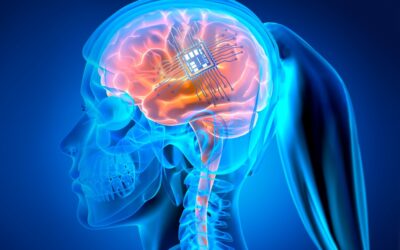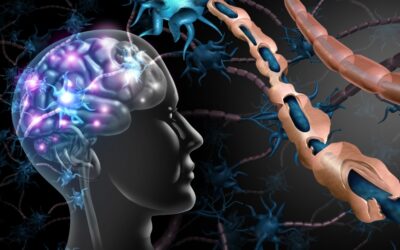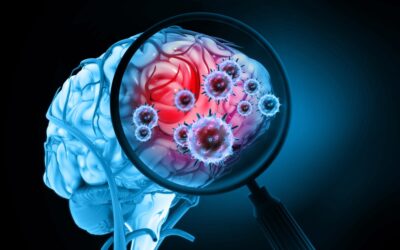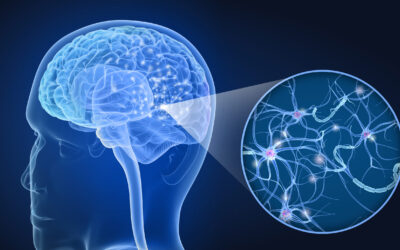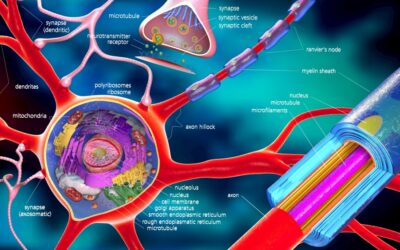Following a neurologic injury, some people experience a leg that feels stiff, heavy, or both. This can make walking difficult. In this video, you will learn the best exercise routine to relearn how to lift the leg more efficiently and minimize the sensation of having a “heavy leg”.
What causes the leg to feel stiff?
Damage to the neurologic system can cause two problems that significantly impact the body’s ability to move. These are spasticity and abnormal synergy patterns. Spasticity, an involuntary muscle contraction, in the quadriceps (muscles that straighten the knee) can make the knee difficult to bend while walking. This can cause the leg to feel like it is stuck to the ground. An abnormal synergy pattern can also cause the knee to want to stay locked out straight. Both of these movement problems can make the leg feel heavy and make walking difficult
What are the best exercises for a stiff or heavy leg?
The best place to start is lying down with the knees bent. Starting with the knees bent will make it easier to lift the leg. Lying down, can help the body to stay more relaxed and may minimize the impact of the abnormal muscle synergy and spasticity noted above.

Next, try starting with the leg starting from a more extended position.
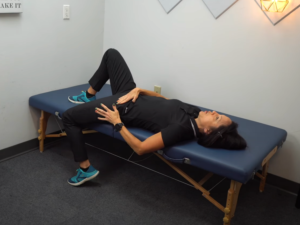
If that is too difficult, you might want to try using the core max to assist
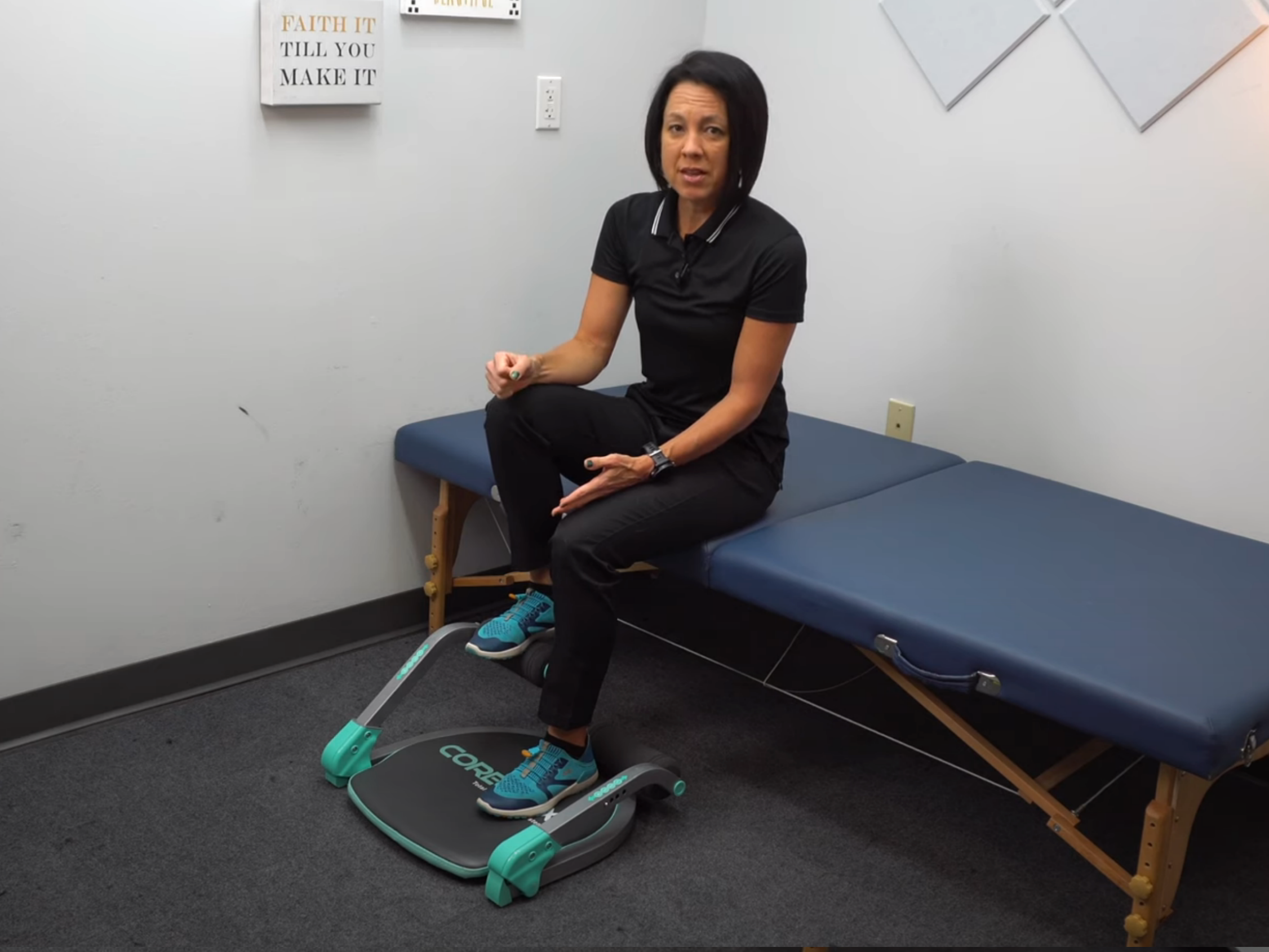
Next, you can move on to trying to bring the leg forward in standing. Use something under your foot to make it easier to bring forward. I recommend a mini skateboard

Once you can bring the leg straight forward, try adding a step
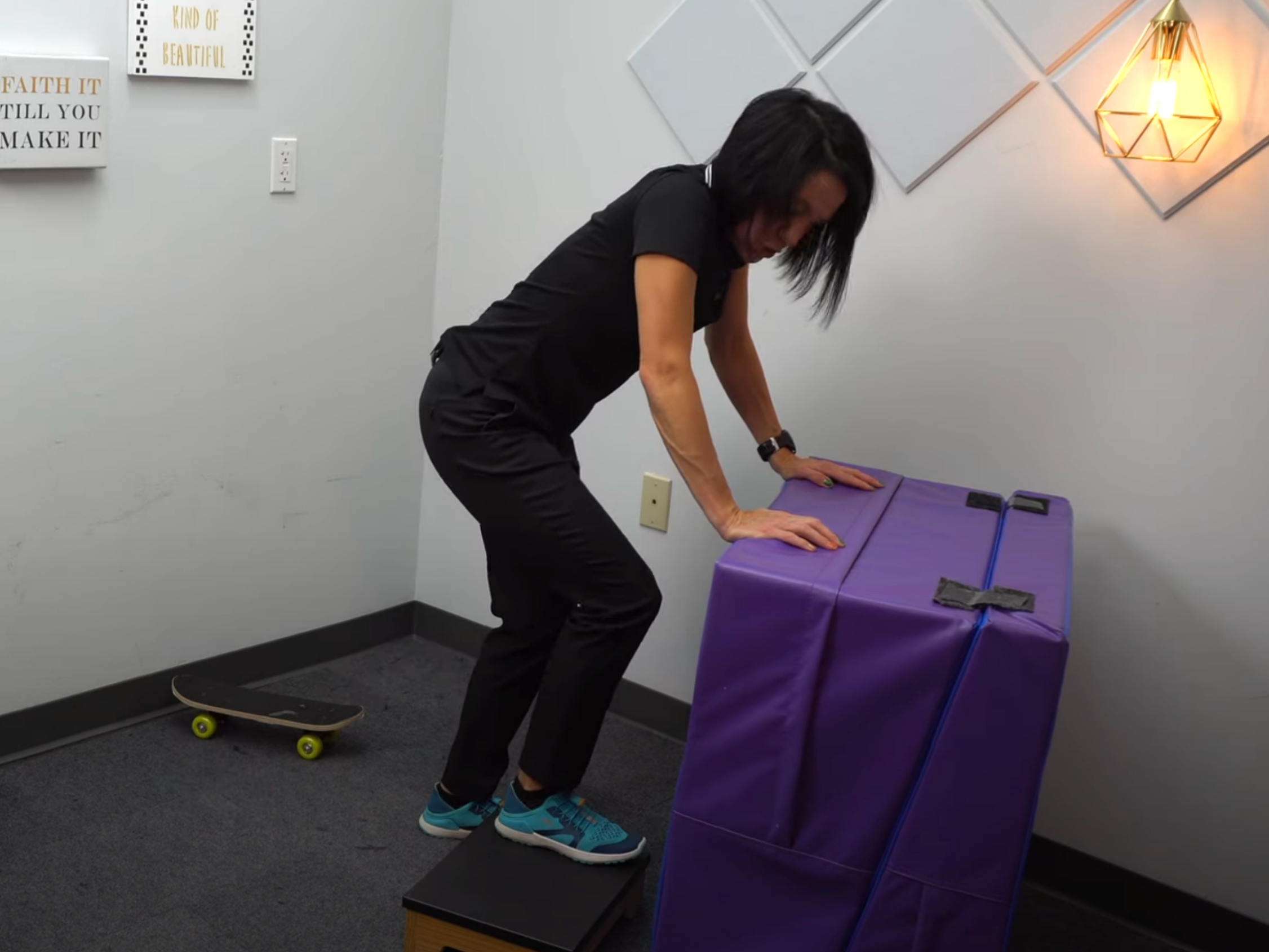
Once you can lift the leg up onto a small step, try working the end range of hip flexion
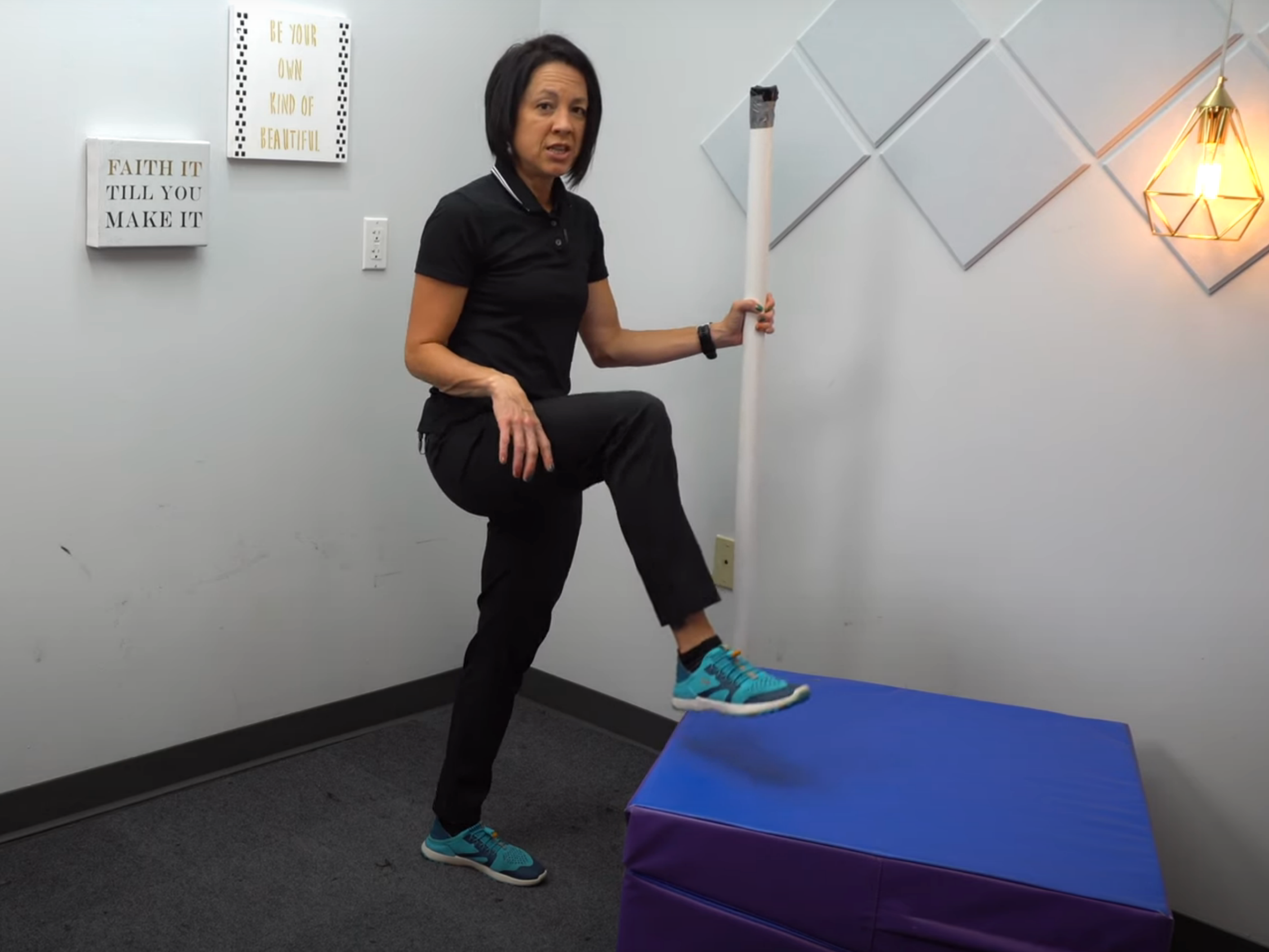
One final recommendation that I have is to use a tool to help you work on lifting the leg while walking. A resistance band belt can significantly help to “normalize” your walking pattern if you have a heavy leg.
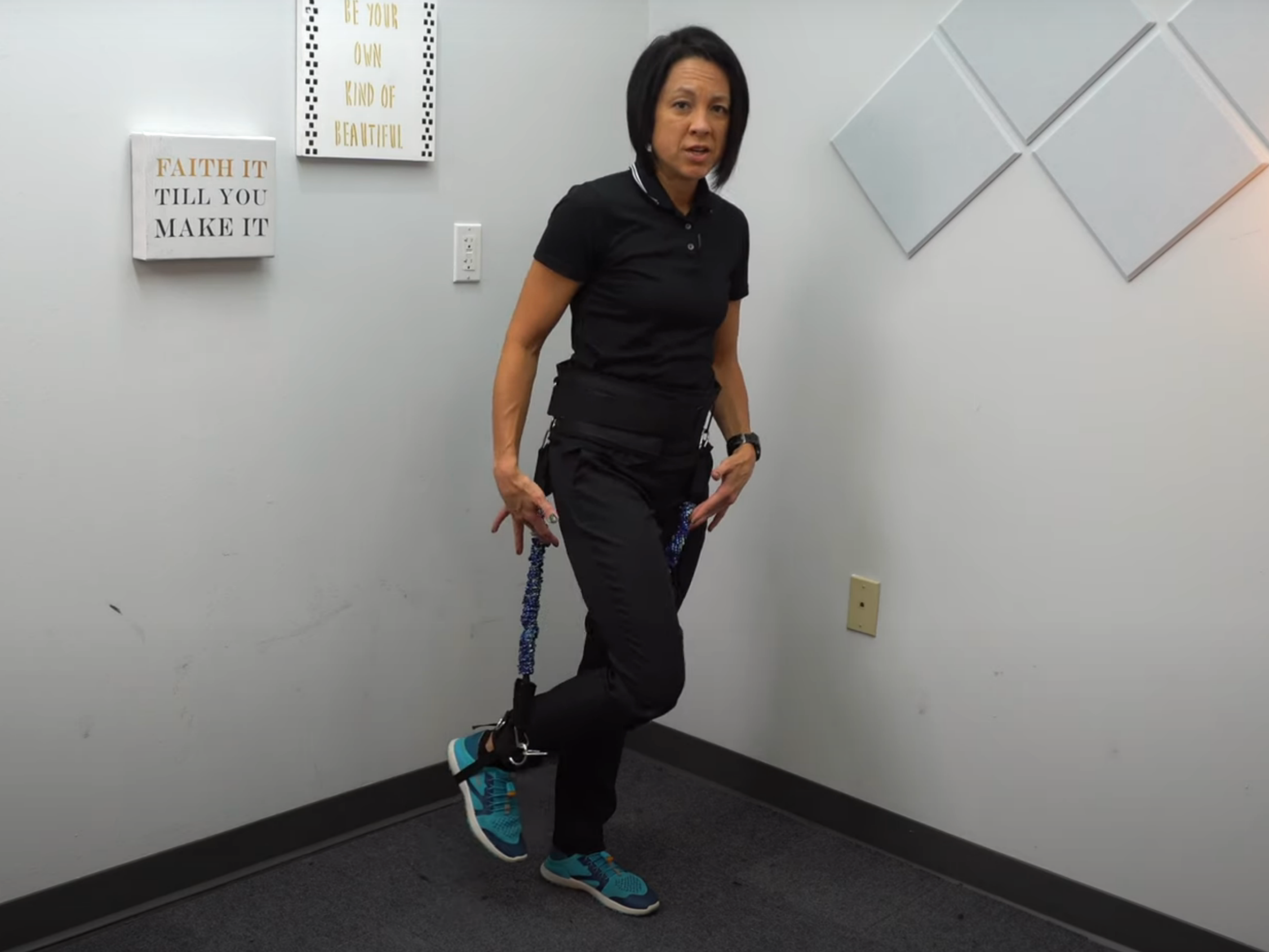
Other articles you may be interested in:
Protein: Essential to brain health and repair
Protein, often referred to as the “building blocks of life” is arguably the most critical macronutrient for brain health and repair and disease prevention as we age. One of three macronutrients found in food the body is primarily composed of protein (second only to...
Simple versus Complex Carbohydrates
Carbohydrates are one of the three macronutrients that make up the foundation of our diet, along with protein and fat. They are found in a wide variety of foods, from fruits and vegetables to bread and pasta. Despite their importance in our diet, carbohydrates have...
Brain Health and Recovery: Food IS Medicine
Brain Health and Recovery: Food IS Medicine Food can be an excellent tool to enhance brain health and recovery. However, if you thought the brain was a complicated system to understand, the data on nutrition is far more complicated. So, spoiler, there is no “perfect...
BDNF And Stroke Recovery
Stroke can cause long lasting disability due to nerve cell (neurons) death greatly impacting someone’s overall quality of life. The neuron death can cause problems with mobility, balance, sensation, speech, vision, cognition (thinking), comprehension (understanding),...
Brain Derived Neurotrophic Factor (BDNF) and Brain Health
Brain-derived neurotrophic factor (BDNF) is a protein that aids in cell function and promotes the growth of new nerve cells (neurogenesis). Studies have shown that BDNF plays a critical role in neuroplasticity (the brains ability to build new nerve connections) and...
Neuroinflammation: Implications in Brain Health and Disease
Neuroinflammation is a broad term that is characterized by an immune response in the central nervous system (CNS) - the brain and spinal cord. This abnormal immune response is initiated by cues including infection, bacteria, brain injury, toxins and autoimmunity. ...
Mitochondrial Dysfunction in Multiple Sclerosis
Multiple sclerosis, also known as encephalomyelitis disseminata is a neurodegenerative disease characterized by damage to the white matter in the brain and spinal cord (central nervous system. The mitochondria are implicated in MS disease progression. With that said,...
Mitochondria: Key to Brain Health
Within every cell of the human body is a pool of structures called mitochondria, often referred to as the “powerhouse” of the cell (generating 90% of the body’s energy). In recent years mitochondria have been credited for brain health and optimal performance. On the...
Dysphagia after stroke
Dysphagia After A Stroke Over 50% of patients are affected by dysphagia after stroke. It is typically characterized by the inability to swallow liquids or foods and can lead to choking. Patients usually tend to recover from post-stroke dysphagia within the first week...
How Old Is Too Old?
You are never too old to set another goal or to dream a new dream. -C.S. Lewis How old is “too old”? I am often curious about this question. Especially when I hear statements like “I am too old to change”, “this is the way I have always been”, “maybe when I was...





